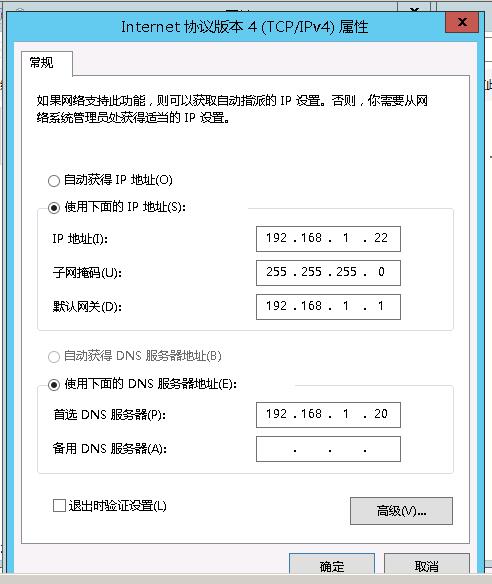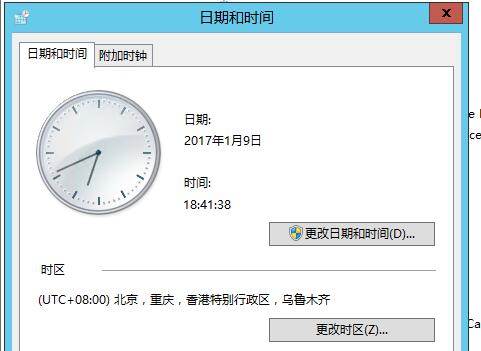我的问题
如何在Unity中实现和使用低级键盘钩子来禁用Windows快捷方式?
我想通过意外使用Windows密钥来防止用户失去我的游戏焦点.这是因为我的应用程序是专为可以随机按键盘的幼儿设计的.
从searching stack overflow开始,我似乎需要实现一个低级键盘钩子.
我试过了什么
以下内容已在Unity中实施.当按下打印屏幕按钮时,它应该将我的应用程序的背景颜色变为黑色,证明我已正确实现它.但是,在测试时,看看我是否可以使用此捕获键盘输入,我发现了这段代码
Debug.Log("Print Screen");
Camera cam = FindobjectOfType<Camera>();
cam.backgroundColor = Color.black;
没有被调用,背景颜色不会变为黑色.
using System;
using System.ComponentModel;
using System.Diagnostics;
using System.Runtime.InteropServices;
namespace SnagFree.TrayApp.Core
{
class GlobalKeyboardHookEventArgs : HandledEventArgs
{
public GlobalKeyboardHook.KeyboardState KeyboardState { get; private set; }
public GlobalKeyboardHook.LowLevelKeyboardInputEvent KeyboardData { get; private set; }
public GlobalKeyboardHookEventArgs(
GlobalKeyboardHook.LowLevelKeyboardInputEvent keyboardData,
GlobalKeyboardHook.KeyboardState keyboardState)
{
KeyboardData = keyboardData;
KeyboardState = keyboardState;
}
}
//Based on https://gist.github.com/Stasonix
class GlobalKeyboardHook : Idisposable
{
public event EventHandler<GlobalKeyboardHookEventArgs> Keyboardpressed;
public GlobalKeyboardHook()
{
_windowsHookHandle = IntPtr.Zero;
_user32LibraryHandle = IntPtr.Zero;
_hookProc = LowLevelKeyboardProc; // we must keep alive _hookProc, because GC is not aware about SetwindowsHookEx behavIoUr.
_user32LibraryHandle = LoadLibrary("User32");
if (_user32LibraryHandle == IntPtr.Zero)
{
int errorCode = Marshal.GetLastWin32Error();
throw new Win32Exception(errorCode, $"Failed to load library 'User32.dll'. Error {errorCode}: {new Win32Exception(Marshal.GetLastWin32Error()).Message}.");
}
_windowsHookHandle = SetwindowsHookEx(WH_KEYBOARD_LL, _hookProc, _user32LibraryHandle, 0);
if (_windowsHookHandle == IntPtr.Zero)
{
int errorCode = Marshal.GetLastWin32Error();
throw new Win32Exception(errorCode, $"Failed to adjust keyboard hooks for '{Process.GetCurrentProcess().ProcessName}'. Error {errorCode}: {new Win32Exception(Marshal.GetLastWin32Error()).Message}.");
}
}
protected virtual void dispose(bool disposing)
{
if (disposing)
{
// because we can unhook only in the same thread, not in garbage collector thread
if (_windowsHookHandle != IntPtr.Zero)
{
if (!UnhookWindowsHookEx(_windowsHookHandle))
{
int errorCode = Marshal.GetLastWin32Error();
throw new Win32Exception(errorCode, $"Failed to remove keyboard hooks for '{Process.GetCurrentProcess().ProcessName}'. Error {errorCode}: {new Win32Exception(Marshal.GetLastWin32Error()).Message}.");
}
_windowsHookHandle = IntPtr.Zero;
// ReSharper disable once DelegateSubtraction
_hookProc -= LowLevelKeyboardProc;
}
}
if (_user32LibraryHandle != IntPtr.Zero)
{
if (!FreeLibrary(_user32LibraryHandle)) // reduces reference to library by 1.
{
int errorCode = Marshal.GetLastWin32Error();
throw new Win32Exception(errorCode, $"Failed to unload library 'User32.dll'. Error {errorCode}: {new Win32Exception(Marshal.GetLastWin32Error()).Message}.");
}
_user32LibraryHandle = IntPtr.Zero;
}
}
~GlobalKeyboardHook()
{
dispose(false);
}
public void dispose()
{
dispose(true);
GC.SuppressFinalize(this);
}
private IntPtr _windowsHookHandle;
private IntPtr _user32LibraryHandle;
private HookProc _hookProc;
delegate IntPtr HookProc(int nCode, IntPtr wParam, IntPtr lParam);
[DllImport("kernel32.dll")]
private static extern IntPtr LoadLibrary(string lpFileName);
[DllImport("kernel32.dll", CharSet = CharSet.Auto)]
private static extern bool FreeLibrary(IntPtr hModule);
/// <summary>
/// The SetwindowsHookEx function installs an application-defined hook procedure into a hook chain.
/// You would install a hook procedure to monitor the system for certain types of events. These events are
/// associated either with a specific thread or with all threads in the same desktop as the calling thread.
/// </summary>
/// <param name="idHook">hook type</param>
/// <param name="lpfn">hook procedure</param>
/// <param name="hMod">handle to application instance</param>
/// <param name="dwThreadId">thread identifier</param>
/// <returns>If the function succeeds, the return value is the handle to the hook procedure.</returns>
[DllImport("USER32", SetLastError = true)]
static extern IntPtr SetwindowsHookEx(int idHook, HookProc lpfn, IntPtr hMod, int dwThreadId);
/// <summary>
/// The UnhookWindowsHookEx function removes a hook procedure installed in a hook chain by the SetwindowsHookEx function.
/// </summary>
/// <param name="hhk">handle to hook procedure</param>
/// <returns>If the function succeeds, the return value is true.</returns>
[DllImport("USER32", SetLastError = true)]
public static extern bool UnhookWindowsHookEx(IntPtr hHook);
/// <summary>
/// The CallNextHookEx function passes the hook information to the next hook procedure in the current hook chain.
/// A hook procedure can call this function either before or after processing the hook information.
/// </summary>
/// <param name="hHook">handle to current hook</param>
/// <param name="code">hook code passed to hook procedure</param>
/// <param name="wParam">value passed to hook procedure</param>
/// <param name="lParam">value passed to hook procedure</param>
/// <returns>If the function succeeds, the return value is true.</returns>
[DllImport("USER32", SetLastError = true)]
static extern IntPtr CallNextHookEx(IntPtr hHook, int code, IntPtr wParam, IntPtr lParam);
[StructLayout(LayoutKind.Sequential)]
public struct LowLevelKeyboardInputEvent
{
/// <summary>
/// A virtual-key code. The code must be a value in the range 1 to 254.
/// </summary>
public int VirtualCode;
/// <summary>
/// A hardware scan code for the key.
/// </summary>
public int HardwareScanCode;
/// <summary>
/// The extended-key flag, event-injected Flags, context code, and transition-state flag. This member is specified as follows. An application can use the following values to test the keystroke Flags. Testing LLKHF_INJECTED (bit 4) will tell you whether the event was injected. If it was, then testing LLKHF_LOWER_IL_INJECTED (bit 1) will tell you whether or not the event was injected from a process running at lower integrity level.
/// </summary>
public int Flags;
/// <summary>
/// The time stamp stamp for this message, equivalent to what GetMessageTime would return for this message.
/// </summary>
public int TimeStamp;
/// <summary>
/// Additional information associated with the message.
/// </summary>
public IntPtr Additionalinformation;
}
public const int WH_KEYBOARD_LL = 13;
//const int HC_ACTION = 0;
public enum KeyboardState
{
KeyDown = 0x0100,
KeyUp = 0x0101,
SysKeyDown = 0x0104,
SysKeyUp = 0x0105
}
public const int VkSnapshot = 0x2c;
//const int VkLwin = 0x5b;
//const int VkRwin = 0x5c;
//const int VkTab = 0x09;
//const int VkEscape = 0x18;
//const int VkControl = 0x11;
const int KfAltdown = 0x2000;
public const int LlkhfAltdown = (KfAltdown >> 8);
public IntPtr LowLevelKeyboardProc(int nCode, IntPtr wParam, IntPtr lParam)
{
bool fEatKeystroke = false;
var wparamTyped = wParam.ToInt32();
if (Enum.IsDefined(typeof(KeyboardState), wparamTyped))
{
object o = Marshal.PtrToStructure(lParam, typeof(LowLevelKeyboardInputEvent));
LowLevelKeyboardInputEvent p = (LowLevelKeyboardInputEvent)o;
var eventArguments = new GlobalKeyboardHookEventArgs(p, (KeyboardState)wparamTyped);
EventHandler<GlobalKeyboardHookEventArgs> handler = Keyboardpressed;
handler?.Invoke(this, eventArguments);
fEatKeystroke = eventArguments.Handled;
}
return fEatKeystroke ? (IntPtr)1 : CallNextHookEx(IntPtr.Zero, nCode, wParam, lParam);
}
}
}
用法:
using System;
using System.Collections;
using System.Collections.Generic;
using UnityEngine;
namespace SnagFree.TrayApp.Core
{
internal class Controller : MonoBehavIoUr
{
public bool printScreen = false;
private GlobalKeyboardHook _globalKeyboardHook;
public void SetupKeyboardHooks()
{
_globalKeyboardHook = new GlobalKeyboardHook();
_globalKeyboardHook.Keyboardpressed += OnKeypressed;
}
private void OnKeypressed(object sender, GlobalKeyboardHookEventArgs e)
{
//Debug.WriteLine(e.KeyboardData.VirtualCode);
if (e.KeyboardData.VirtualCode != GlobalKeyboardHook.VkSnapshot)
return;
// seems, not needed in the life.
//if (e.KeyboardState == GlobalKeyboardHook.KeyboardState.SysKeyDown &&
// e.KeyboardData.Flags == GlobalKeyboardHook.LlkhfAltdown)
//{
// MessageBox.Show("Alt + Print Screen");
// e.Handled = true;
//}
//else
if (e.KeyboardState == GlobalKeyboardHook.KeyboardState.KeyDown)
{
e.Handled = true;
Debug.Log("Print Screen");
Camera cam = FindobjectOfType<Camera>();
cam.backgroundColor = Color.black;
}
}
public void dispose()
{
_globalKeyboardHook?.dispose();
}
}
}
解决方法:
要禁用/放弃或忽略低级输入,您必须使用原始输入
详情:https://docs.microsoft.com/en-us/windows/desktop/inputdev/raw-input
但是在Unity中使用它并不是一个好主意!
使用统一的“板载”工具,您无法禁用/忽略Windows键或其他组合等关键事件,因为您的操作系统将首先处理这些事件,在此之后,它会将这些事件传递给您的程序,如Unity /独立播放器.要在Unity中使用不安全的代码(导入W32Libs),您必须处理您正在做的事情.没有人阻止你创建内存泄漏. Unity也不是这样设计的,这可能导致运行时出现不稳定和非常奇怪的行为(即使在编辑器中)
当您从操作系统/环境中删除他们正常使用的工作行为时,您也会开始讨厌您的用户,例如:当由于密钥被删除而无法访问“打开任务管理器”功能时,如何在崩溃时关闭应用程序?如何切换到我的桌面.
这就是我写“但在Unity中使用它不是一个好主意”的原因.



